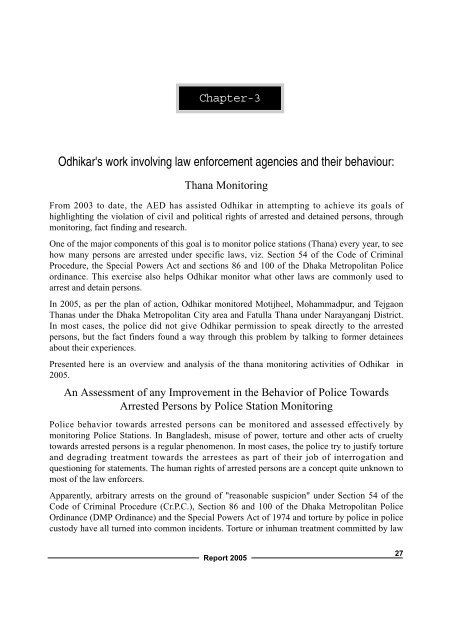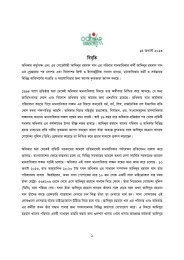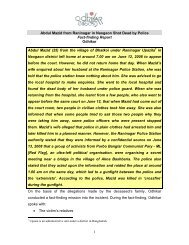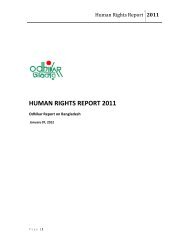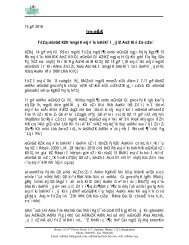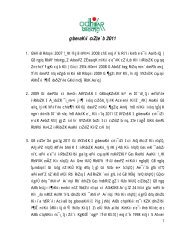Please - Odhikar
Please - Odhikar
Please - Odhikar
Create successful ePaper yourself
Turn your PDF publications into a flip-book with our unique Google optimized e-Paper software.
Chapter-3<br />
<strong>Odhikar</strong>'s work involving law enforcement agencies and their behaviour:<br />
Thana Monitoring<br />
From 2003 to date, the AED has assisted <strong>Odhikar</strong> in attempting to achieve its goals of<br />
highlighting the violation of civil and political rights of arrested and detained persons, through<br />
monitoring, fact finding and research.<br />
One of the major components of this goal is to monitor police stations (Thana) every year, to see<br />
how many persons are arrested under specific laws, viz. Section 54 of the Code of Criminal<br />
Procedure, the Special Powers Act and sections 86 and 100 of the Dhaka Metropolitan Police<br />
ordinance. This exercise also helps <strong>Odhikar</strong> monitor what other laws are commonly used to<br />
arrest and detain persons.<br />
In 2005, as per the plan of action, <strong>Odhikar</strong> monitored Motijheel, Mohammadpur, and Tejgaon<br />
Thanas under the Dhaka Metropolitan City area and Fatulla Thana under Narayanganj District.<br />
In most cases, the police did not give <strong>Odhikar</strong> permission to speak directly to the arrested<br />
persons, but the fact finders found a way through this problem by talking to former detainees<br />
about their experiences.<br />
Presented here is an overview and analysis of the thana monitoring activities of <strong>Odhikar</strong> in<br />
2005.<br />
An Assessment of any Improvement in the Behavior of Police Towards<br />
Arrested Persons by Police Station Monitoring<br />
Police behavior towards arrested persons can be monitored and assessed effectively by<br />
monitoring Police Stations. In Bangladesh, misuse of power, torture and other acts of cruelty<br />
towards arrested persons is a regular phenomenon. In most cases, the police try to justify torture<br />
and degrading treatment towards the arrestees as part of their job of interrogation and<br />
questioning for statements. The human rights of arrested persons are a concept quite unknown to<br />
most of the law enforcers.<br />
Apparently, arbitrary arrests on the ground of "reasonable suspicion" under Section 54 of the<br />
Code of Criminal Procedure (Cr.P.C.), Section 86 and 100 of the Dhaka Metropolitan Police<br />
Ordinance (DMP Ordinance) and the Special Powers Act of 1974 and torture by police in police<br />
custody have all turned into common incidents. Torture or inhuman treatment committed by law<br />
Report 2005<br />
27


